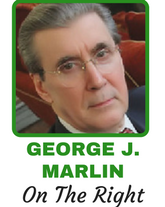Have you ever had this experience? After responding to a question related to your profession or field of expertise, a millennial rejects your answer as mere opinion and declares that thanks to Google, he/she is your equal on the subject.
When I’m in a similar situation and my knowledge of political history or philosophy is challenged, I inform the young sophist that I am not rendering an opinion but an informed judgment based on 45 years of experience and study, and then go on to expose his/her intellectual short-comings.
I must confess that I do enjoy observing the reaction of the precious little snowflake who is not accustomed to being challenged.
Generally, all pretensions of an intelligent dialogue are dropped and I am admonished for daring to hurt the person’s feelings and called a fascist.
My anecdote leads to a broader concern that is adroitly examined in Tom Nichol’s new book: “The Death of Expertise: The Campaign against Established Knowledge and Why it Matters.”
Nichols, a national security expert and professor at the U.S. Naval War College and the Harvard Extension School, sums up his thesis thusly, “Thanks to technological advances and increasing levels of education, we have access to more information than even before. Yet, rather than ushering in a new era of enlightenment, the information age has helped fuel a surge in narcissistic and misguided intellectual egalitarianism that has crippled informed debates on any number of issues. Today everyone knows everything with only a quick trip through WebMD or Wikipedia, average citizens believe themselves to be on equal intellectual footing with doctors and diplomats.”
The death of expertise does not mean the demise of expert abilities which are required for a society to function. It means the rejection of existing knowledge and “dispassionate rationality, which are the foundations of modern civilization,” by an ever-increasing segment of our population.
This phenomenon, Nichols argues, has led to a country “obsessed with the worship of its own ignorance.”
Opinions have become facts.
Misinformation spreads like wildfire. Because emotion rules, many are incapable or ill-equipped to follow a logical argument and are hostile to those who have mastered critical thinking.
As a result, for many, “to disagree is to disrespect. To correct another is to insult. And to refuse to acknowledge all views as worthy of consideration, no matter how fantastic or inane they are, is to be close-minded.”
Who is to blame for this mess?
First, there are parents who subscribed to a nihilistic ethnic of self-esteem that submits to no sapient higher than themselves and brought into the world progeny who were expected to be intellectually, physically and aesthetically superior to the rest of society.
These self-absorbed, self-centered children grew up in an environment where they were not judged or evaluated, never learned to live with disappointment, and became accustomed to receiving praise regardless of their efforts.
The other culprit: universities.
To maintain the self-esteem of “trophy kids,” professors expect less work and students expect easy grades. Students hardly ever fail and “B” is the standard grade one gets for showing up.
Parents believe that paying huge tuition bills means their children are entitled to get good grades. And parents and students will badger teachers if a grade does not meet their grandiose expectations.
Instead of being “the calm environment in which educated men and women determine what’s true and what’s false, and where they learn to follow a model of scholarly inquiry no matter where it takes them,” colleges, Nichols observes, “have become hostages to students who demand that their feelings override every other consideration.”
Hence, students are intolerant and are resorting more and more to violence over imagined slights.
People “no longer understand democracy to mean a condition of political equality in which one person gets one vote, and every individual is no more and no less equal in the eyes of the law. Rather, Americans now think of democracy as a state of actual equality, in which every opinion is as good as any other on almost any subject under the sun.”
“In The Death of Expertise,” Nichols sadly concludes that if this trend continues and “…democracy is understood as an unending demand for unearned respect for unfound opinions, anything and everything becomes possible including the end of democracy and republican government itself.”



